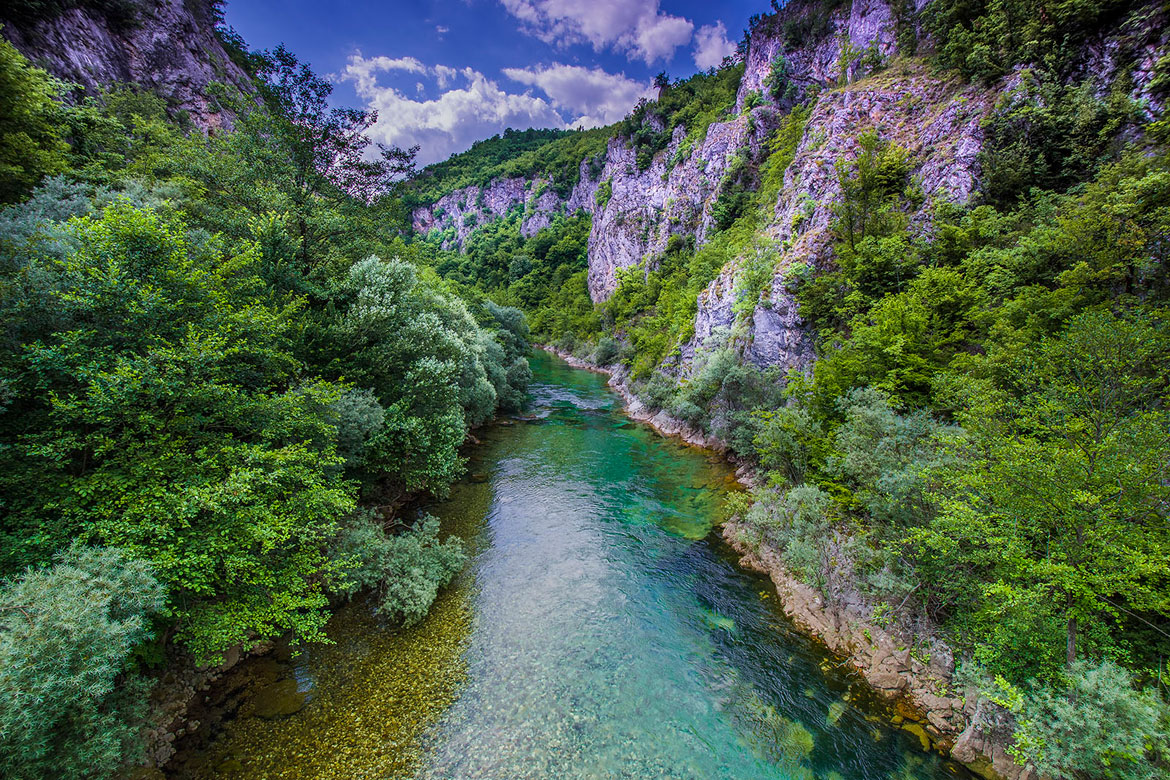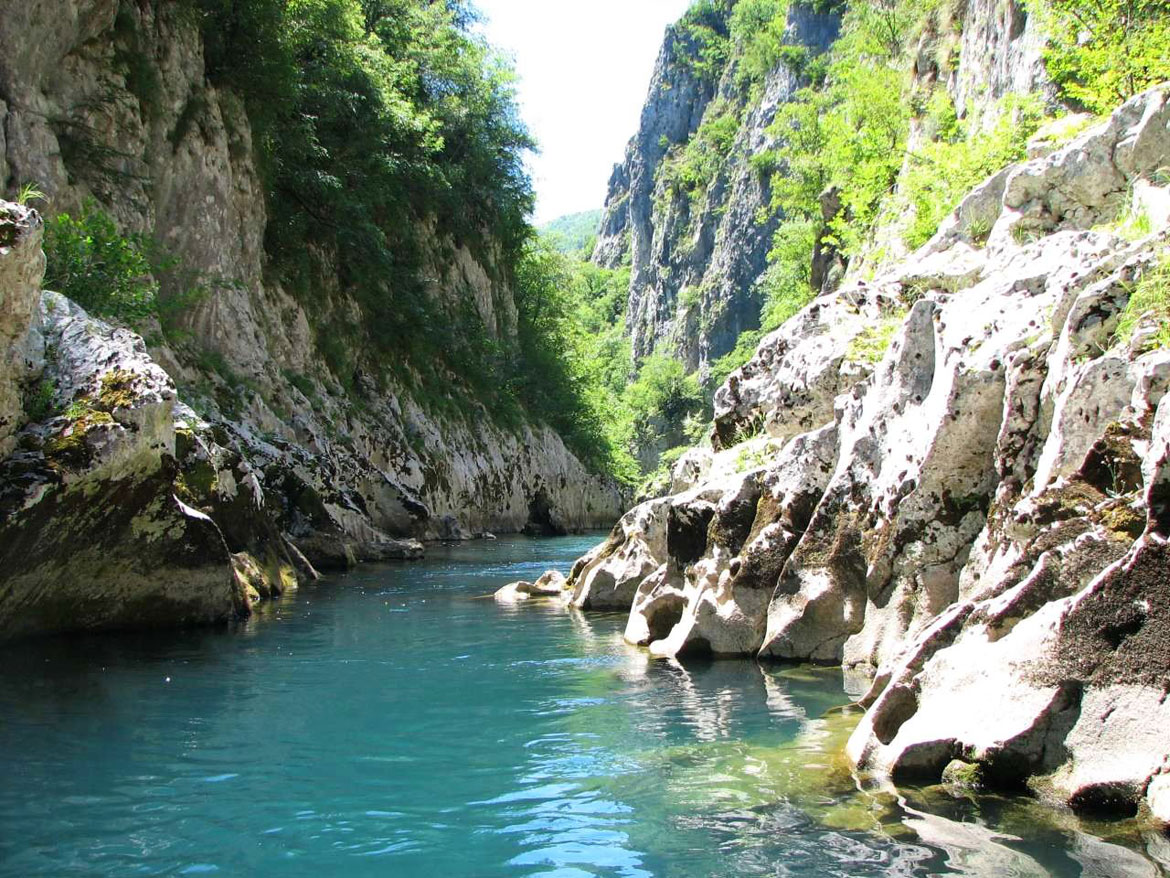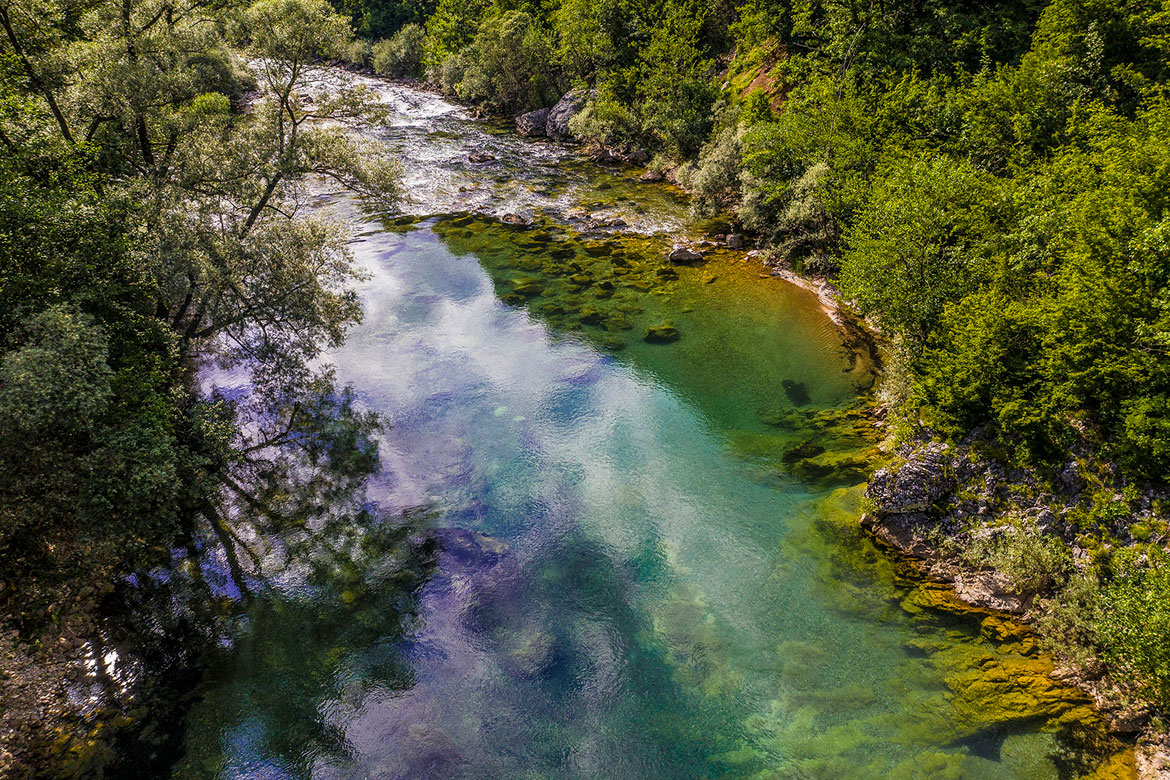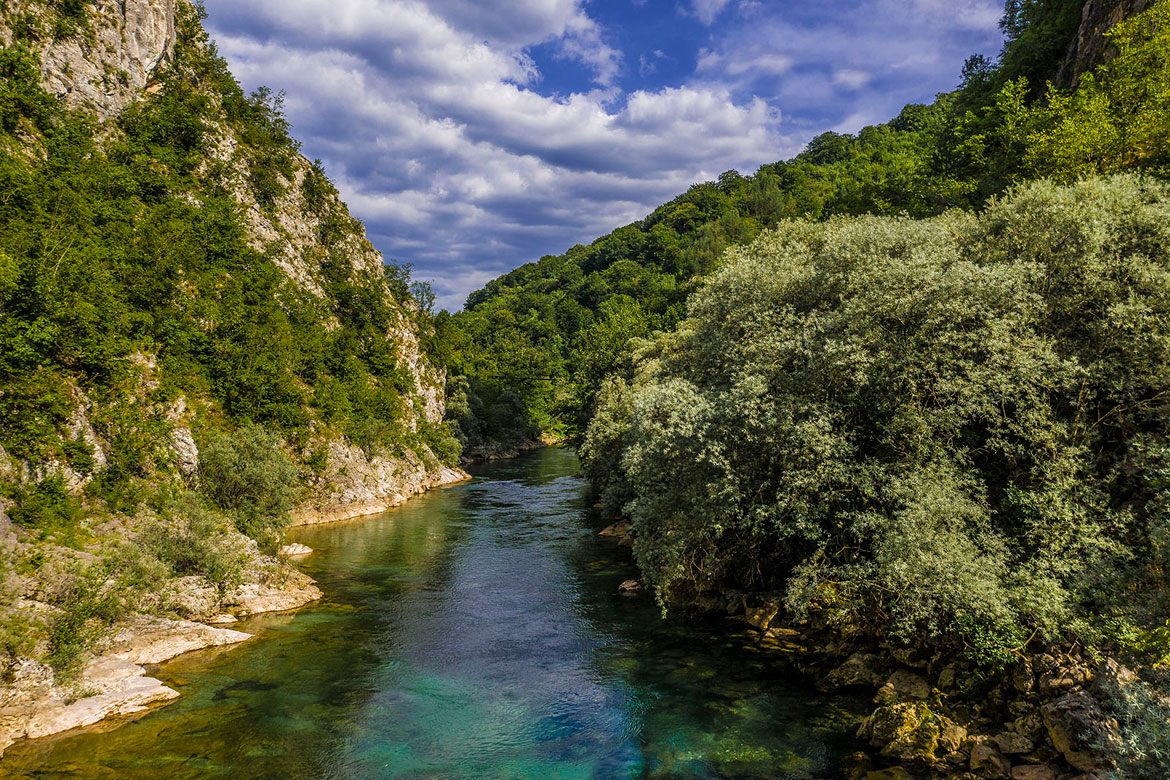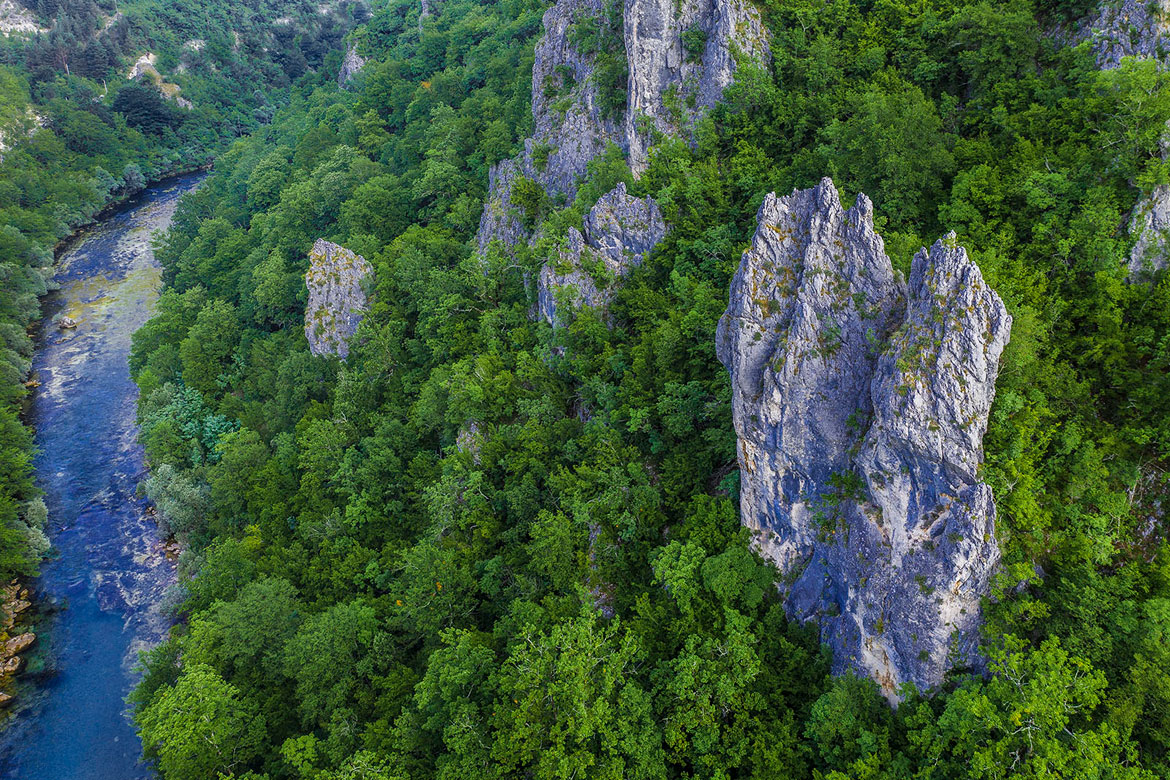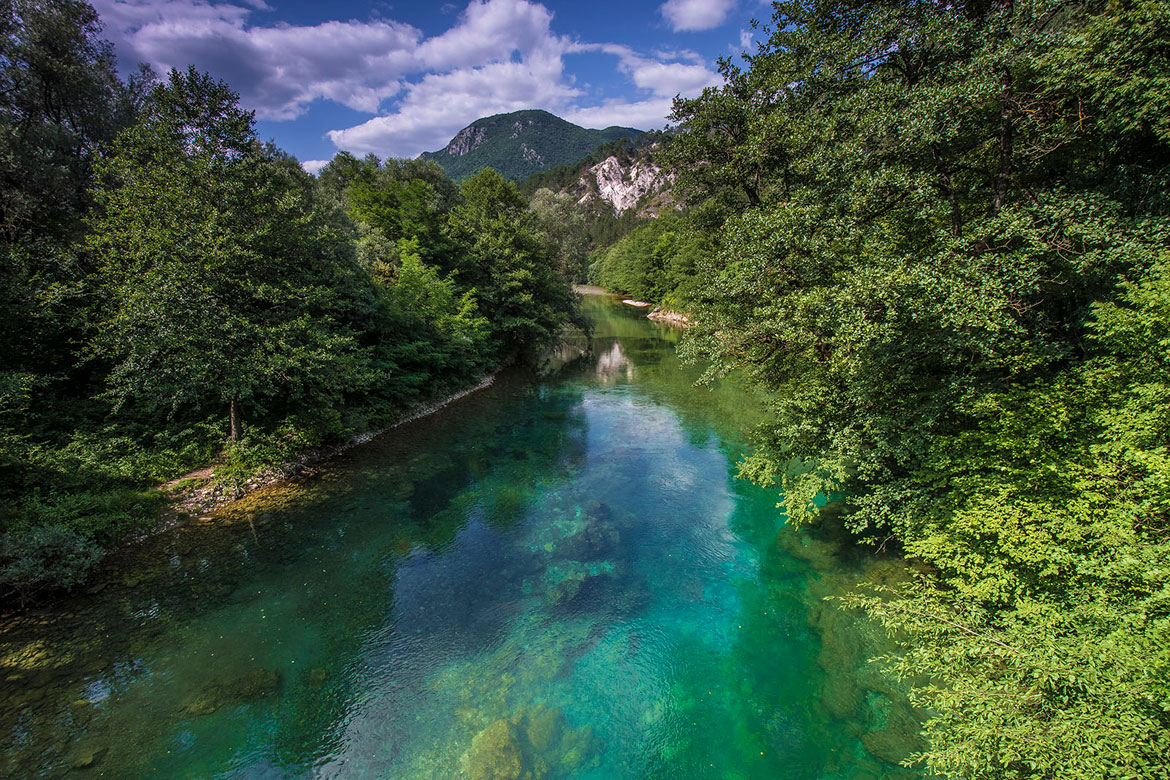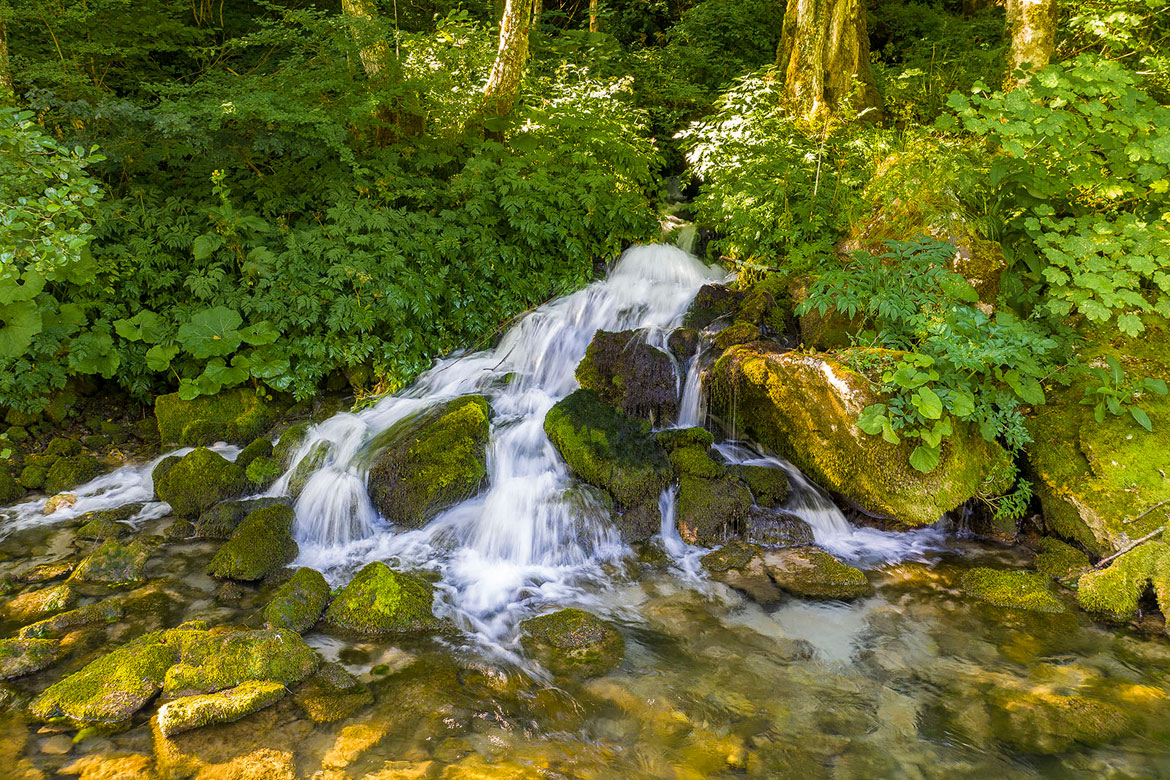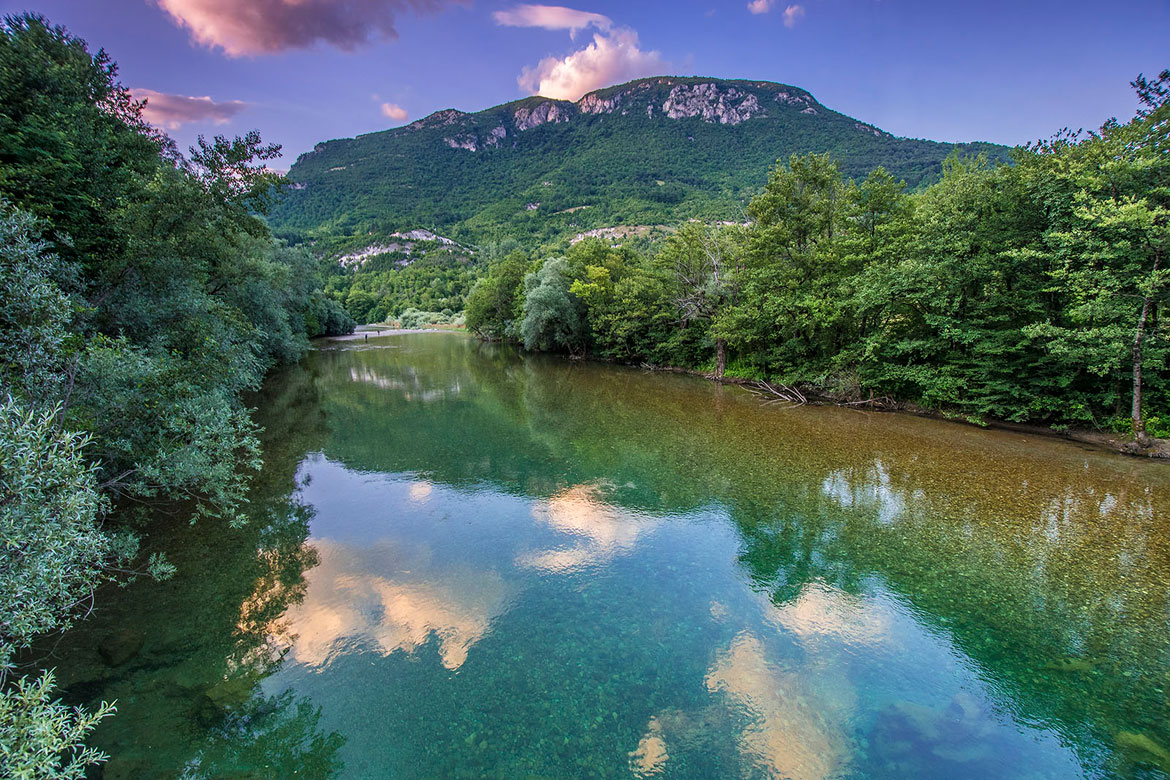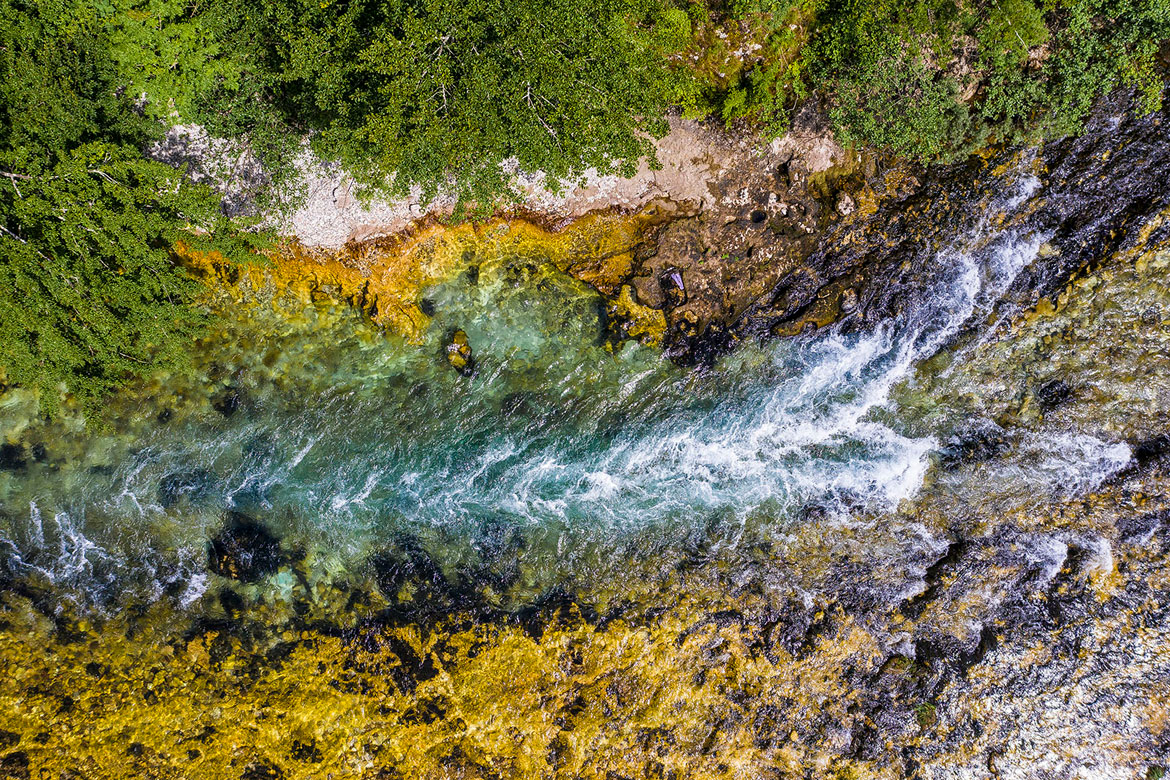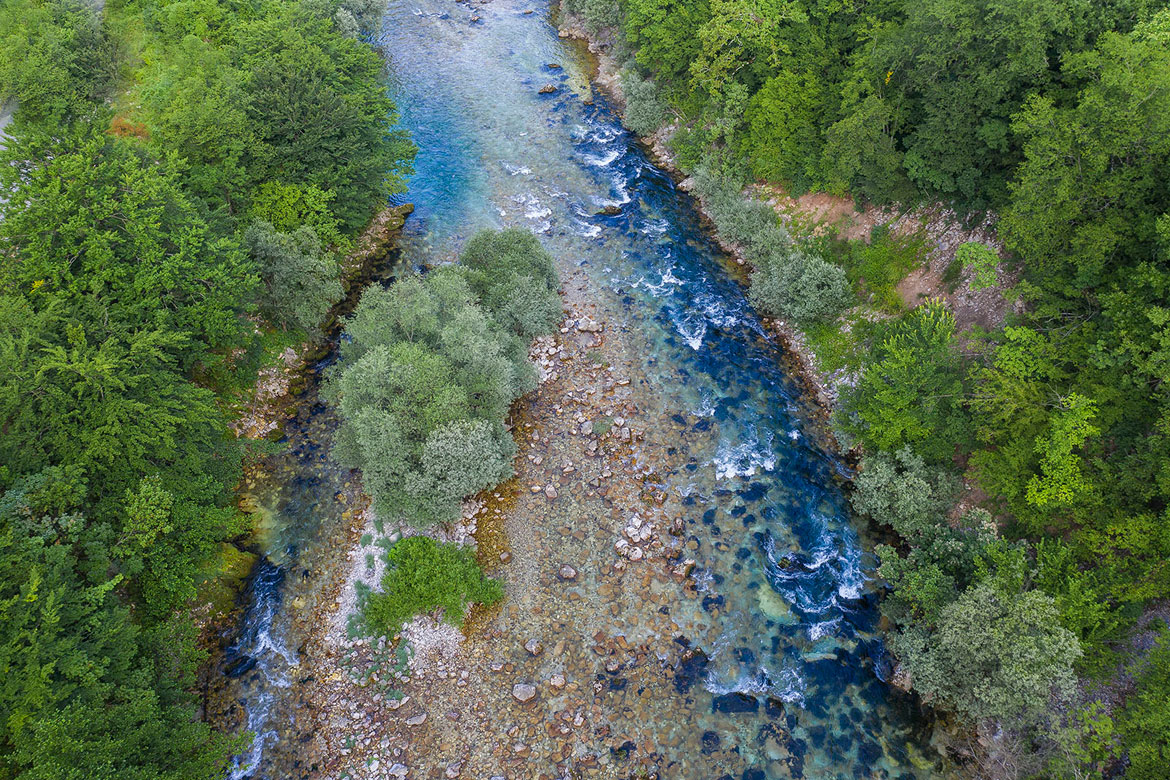The map is without prejudice to positions on status, and is in line with UNSCR 1244/1999 and the ICJ opinion on the Kosovo declaration of independence.
The Neretva River is steeped in legend, a place that has fascinated humans since the earliest prehistory. According to some, the name of the river comes from the ancient Illyrian name Nera-Etwa meaning “Divinity that flows”. A fitting name for a river that has inspired artists, poets, and scientists throughout history.
Its source is situated at the base of the Zelengora and Lebršnik mountains in Bosnia and Herzegovina, at the height of 1,227 meters above sea level. Flowing for 230 kilometers before it empties into the Adriatic Sea in Croatia, the Neretva River is the largest karst river in the entire eastern part of the Adriatic Sea basin. Throughout its course, the river shapes different landscapes: from deep canyons in the upper and middle parts to fertile valleys and wetlands as it nears the sea.
The river is teeming with life, supporting rich biodiversity with species such as the Adriatic and softmouth trout, Mosor rock lizard, white-clawed crayfish, golden eagle, otter, lynx, and many others. In fact, recent scientific studies done in the upper part of the river have confirmed the presence of more than 1,300 animal and plant species, making the Neretva one of the most biodiverse rivers in Europe.
The Neretva River has played an important role throughout the history of Bosnia and Herzegovina. The river and its valley have been inhabited since prehistoric times, and the Illyrians, Romans, and Ottomans all left their mark on the region.
Today, the river has become a hub for recreational activities. Every summer, the city of Mostar is the place to be for many of the world’s best professional divers who want to show off their skill and bravery by jumping off the Old Bridge in the city center. Those interested in experiencing the river from a different perspective, choose rafting and kayaking down its emerald-green waters.
The Neretva River is a cultural and ecological treasure, as well as a symbol and a source of identity for people who live on its banks. To protect its breathtaking landscapes and tremendous biodiversity, efforts led by our partners from the Center for Environment in Banja Luka are underway to protect the upper part of the river and its tributaries. This would preserve one of the most pristine ecosystems in Bosnia and Herzegovina and the Neretva River would continue to be a source of inspiration, enjoyment, and pride for generations to come.

 Hrvatski
Hrvatski